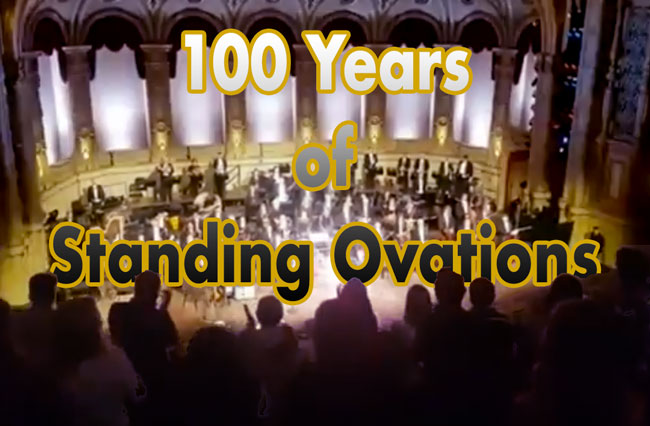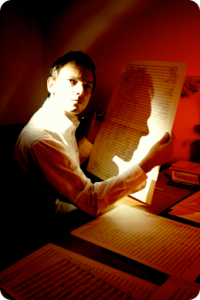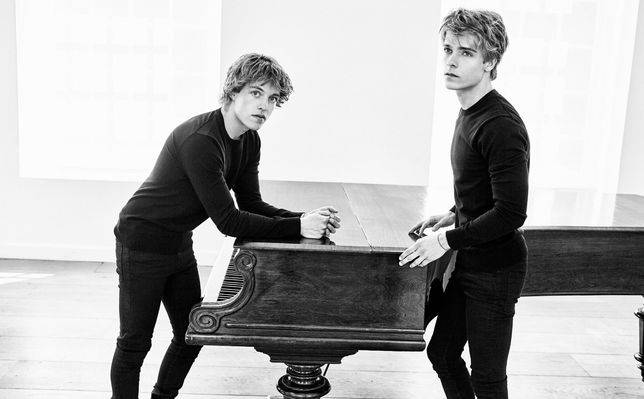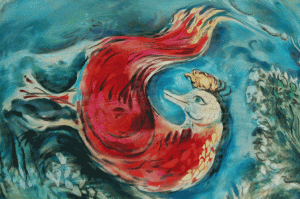
A number of years ago, I attended a touring performance of the St. Petersburg Symphony at the Théâtre des Clamps-Élysées in Paris, and what struck me most was the audience. Accustomed as I was here in Vancouver to a steady diet of competent yet unremarkable performances followed by overwhelmingly enthusiastic standing ovations, I was stunned by the restraint of the Parisians. Not that the St. Petersburg Symphony was lack-lustre—anything but! Perched on the edge of my seat, I thought “For sure everyone will go nuts at this!” I’d heard how capably Russian string sections played—the incisive attacks, soaring phrases, and turn-on-dime responsiveness like those sky-blackening murmurations of starlings—so I fully expected all-out pandemonium from the audience when the music stopped. But no. Polite yet sustained applause, and then to the exits.
Which is why when we went to hear the VSO’s 100th anniversary season opener, it was the unbridled enthusiasm of the audience that made the evening so memorable. Here’s what we heard.

Helix by former VSO resident composer Edward Top set out into more intellectual waters—some sort of references to DNA double helices, I think—but even if you didn’t get the underlying science, the music was full of warmth and cohesion as swirling strands of sound twisted heavenward out of the orchestra.
It wasn’t too long ago that a new commission was greeted with muted horror by audiences preferring a diet that did not stray too far outside the Mozart-to-Rachmaninov spectrum. But applause was hearty and generous. For me, Top’s music holds a lot of subtlety so I thought that if the orchestra had a few more cracks at the score, it would certainly realize Top’s ideas better. World premiers are a risky affair so bravos all ’round.
Next up, the concerto. This one provided us with a double Dutch treat: Arthur and Lucas Jussen. These two lads performed Poulenc’s youthful Double Piano Concerto with as much pouty impertinence as Poulenc’s score demanded (which was a lot—and they had a lot). Here, the orchestration sparkles, bright optimistic melodies suddenly sour into petulance, while pilfered memes from Mozart fly by with artless grace. But even before all this could happen, the flaxen-haired boys had sailed onto stage clad in little more than matching skin-tight military, er, jumpsuits, so it was foregone that the audience would swoon.

Lest I give them the looks-over-talent treatment that many attractive female celebrities must contend with, I’ll add that their command of the material was superb and their communication with each other, the conductor, and the orchestra kept everything snappy and focused. Even so, during intermission I overheard one patron remark their performance was “bordering on homoerotic”. That it was, Blanche.

Stravinsky’s Firebird was the highlight of the programme (not that you’d know from the seats vacated along with the departure of the Dutch boys—I guess they were the real draw). Back in ’65, we were told, the VSO performed the Firebird under the baton of none other that the old bird himself—Igor Stravinsky. Way back then, we were also told, the VSO just performed the Suite from the Firebird (as if that were a simplified version suitable only for school orchestras or something). In truth, there’s a reason why Igor created a concert suite from the full ballet—to be performed on concert stages when no dancers were to be had. I thought perhaps new conductor Otto Tausk might have created a compelling vision of the piece but instead it had a bit of a sitzprobe (cue-to-cue) sound as individual players and sections executed their entrances with precision but without the overarching cohesion needed. But “No matter” concluded the audience as it leapt to its feet in a shameless orgy of applause…
Benjamin Zander, conductor of the Boston Philharmonic, champions the idea of “one-buttock playing”, an approach which I translate to mean playing on the edge—daring to take a risk. In the Firebird, there were indeed moments that shone with unparalleled beauty (by the first violin section) and might (by the low brass), and Concertmaster Nicholas Wright’s violin solos were sublime. But in this performance, I found that too few of the players sounded like they were ready to risk anything, certainly not a buttock. Perhaps in the next 100 years or so, we can look forward to some of that VSO audience enthusiasm rubbing off more on the players themselves. Bravo audience.
